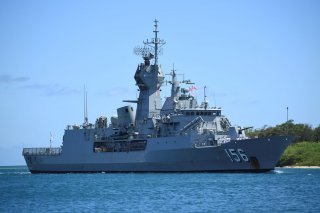by Ryan Ashley Abby Bard
In the midst of the coronavirus, the United States must adapt to the new “normal” imposed by the pandemic as it manages its alliances and partnerships in the Indo-Pacific. The pandemic has slowed down operational tempo, sidelined key U.S. naval assets, and limited America’s ability to conduct joint exercises. Military readiness is at stake. However, alliances aren’t just about sharpening the tactical edge, they’re also about the people that run them. As the coronavirus inhibits traditional alliance management activities, the United States should invest in nurturing the personal relationships that drive our relationships in the Indo-Pacific.
Management of U.S. alliances in the Indo-Pacific requires cooperation and trust between government and military officials located across the Pacific Ocean. As any experienced alliance hand knows, these relationships are often underpinned by the informal social events that are usually planned around alliance engagements. These seemingly lighthearted gatherings can be just as important to alliance relationships as the training or exercises themselves. In building personal bonds during times of peace, military members on all sides of alliances develop the interpersonal trust needed for 2:00 AM phone calls when conflict seems likely.
The coronavirus presents an obvious hurdle to the cultivation of personal relationships. Alliance managers still have the critical task of setting aside time and effort to stay connected with their counterparts in foreign capitals. Assuming all parties are healthy, now is the exact time to host virtual happy hours, have phone calls “just to chat,” and keep up contact with counterparts. It’s also a chance for alliance managers to invest in key skills like language abilities, which can be sorely lacking in America’s Indo-Pacific alliances. Accordingly, the United States government should increase funding for and access to virtual language opportunities for alliance managers and service members. Similarly, the military should provide opportunities for virtual Professional Military Education to include members of allied militaries in order to facilitate relationships and bolster shared norms.
Of course, the United States government should continue and expand the work it is already doing to adapt military readiness exercises to a pandemic-stricken world. RIMPAC 2020 has been shortened and will only include on-sea exercises as the on-shore social aspects have been eliminated. United States Forces Korea is conducting tabletop exercises and maneuvering in lieu of traditional joint exercises with South Korean forces. Dialogues with allies and partners, like the Korea-U.S. Defense Dialogue and defense minister-level NATO meetings, are now being held online. Although imperfect, these alliance engagements also present opportunities for relationship building, and should thus include virtual social opportunities. While these cannot approximate the personal connections built from tight-knit work in close proximity, planners should consider such events as key to their engagements.
However, the people-to-people aspects of U.S. alliances are not just about government counterparts—they’re also about the civil and private sector relationships that sustain public support for U.S. strategic relationships. For the academic and think tank sector, now is a chance to participate more actively in faraway policy communities—with virtual think tank events and roundtables, members of the policy community can invest in their relationships with counterparts across the globe from the comfort of their couches. These communities should also use the coronavirus as an opportunity to collaborate on written products with partners from international think tanks and academic institutions. The private sector has arguably taken the largest hit from the ongoing pandemic, as many businesses were forced to close or operate remotely by social distancing and lockdown orders. This is all the more reason to take this current emergency to deepen public-private strategic dialogues—both domestically and internationally as the public and private sectors determine best practices for responding the challenges of the coronavirus. Allies like South Korea and Australia and partners like Taiwan have demonstrated remarkable efficacy in controlling the spread of the pandemic, and engaging in dialogue across the Pacific can benefit both the United States’ relationships as well as its disease control efforts.
It is unclear how the coronavirus will affect U.S. public opinion about international engagement—will globalization be seen as the cause of pandemics? Or, will international collaboration on public health measures and an eventual vaccine serve as a proof of the benefits of connectivity? As different constituencies come to different answers, there is a chance that support for our critical network of alliances and partnerships could falter. Therefore, it is critical that U.S. policymakers, alliance managers, and influential thinkers take the time to ensure that people-to-people foundations of our alliances are secure.
Ryan Ashley is a Captain in the United States Air Force and graduate student in Asian Studies at Georgetown University’s School of Foreign Service. Abby Bard is a graduate student in Asian Studies at Georgetown University’s School of Foreign Service, Pacific Forum Young Leader, and former research associate for Asia policy at the Center for American Progress. The opinions expressed here do not reflect the views of the U.S. Government or Air Force.

No comments:
Post a Comment